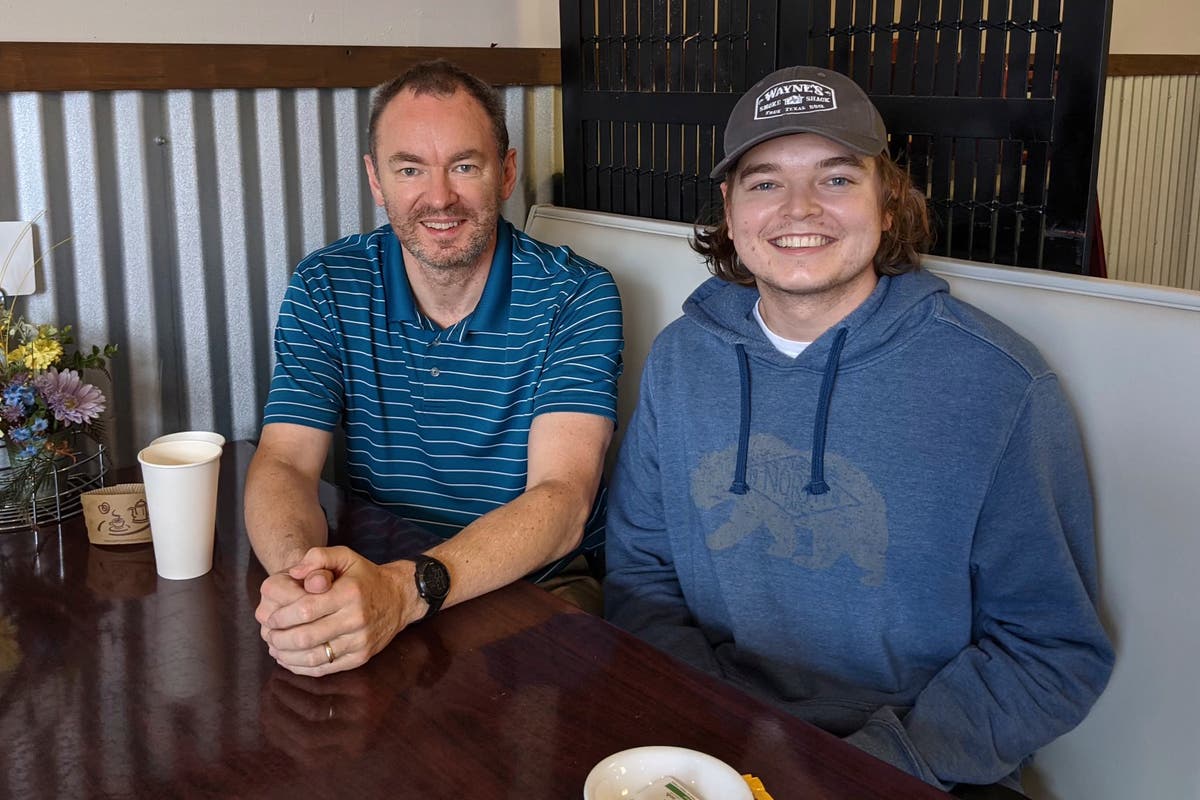
For free real time breaking news alerts sent straight to your inbox sign up to our breaking news emails Sign up to our free breaking news emails Please enter a valid email address Please enter a valid email address SIGN UP I would like to be emailed about offers, events and updates from The Independent. Read our privacy notice Thanks for signing up to the
Breaking News email {{ #verifyErrors }}{{ message }}{{ /verifyErrors }}{{ ^verifyErrors }}Something went wrong. Please try again later{{ /verifyErrors }}
Police who shot a 22-year-old man after he called 911 for roadside assistance escalated the situation, leading to his death, the man’s relatives said as they push for accountability.
The parents of Christian Glass are scheduled to hold a news conference Tuesday in Denver to raise their concerns and release police body camera footage.
The Colorado Bureau of Investigation handles police shootings, including the Glass case, but the family wants prosecutors to file criminal charges, said Siddhartha Rathod, the attorney for the parents.
After the June 10 death in the small mountain town of Silver Plume west of Denver, the Clear Creek County Sheriff’s office issued a news release saying that Glass was shot after he became “argumentative and uncooperative” and tried to stab an officer when police broke a car window to grab him.
“Christian was experiencing a crisis and he called 911 for help,” said Rathod, “and yet these officers busted out Christian’s window, shot him six times with bean bag rounds, Tased him multiple times from two Tasers, and then shot him five times.”
The videos shared with The Associated Press show Glass refusing to come out of his car while also telling police he’s “terrified” and making heart shapes with his hands to officers. At one point, he also can be seen praying with folded hands and saying, “Dear Lord, please, don’t let them break the window.”
When the officers did break the window, Glass seemed to panic and grabbed a knife.
Police then shot Glass with bean bag rounds and shocked him with a stun gun before the young man twisted in his seat and thrust a knife toward an officer, the footage showed. Then one officer fired his gun, hitting Glass. The recordings then show Glass stabbing himself before he died.
The family said the videos were only edited to blur the body. The AP has requested that police provide any videos related to the case.
Rathod said Glass had no history of mental illness, and when asked about Glass’s abnormal behavior, he said “unfortunately we are not ever going to know.”
Nichole Lentz, public records officer for Clear Creek County, declined a request to comment and referred the AP to the Colorado Bureau of Investigation. Bureau spokesperson Susan Medina declined to comment about the investigation other than to say it is ongoing.
The shooting comes amid a national outcry for police reforms focused on crisis intervention, de-escalation and alternative policing programs. In Denver and New York, behavioral health specialists are sent to 911 callers facing crises that police may not be trained to address or could even exacerbate.
Police haven’t said if any behavioral health specialists were called for Glass.
Use-of-force and de-escalation experts who reviewed the footage for The Associated Press said this case is an example of when a behavioral health specialist or crisis response team — programs becoming increasingly popular across the country — may have helped de-escalate the situation and avert Glass’s death.
“There are some real red flags that suggest potential problems,” said Seth Stoughton, a former police officer and leading use-of-force expert who reviewed portions of the footage. Stoughton testified in the trial of Derek Chauvin, the police officer who murdered George Floyd.
While police officers may be justified in using force once a situation has intensified, “it’s everything that we do before that in terms of de-escalation that can make those situations go a completely different direction,” said Tamara Lynn, the executive council president for the National De-Escalation Training Center, who reviewed the footage.
In particular, both Lynn and Stoughton questioned why officers didn’t take Glass up on his offer, recorded by body camera footage, to disarm himself by throwing his knives out of his car window.
While a thrown knife can pose a threat, “officers have plenty of opportunity to maneuver themselves and put themselves in a position that’s not risky,” said Stoughton. “I am kind of astonished that they did not take advantage of what looked like a very clear opportunity to have him separate himself from the weapons.”
Similarly, Stoughton wondered why they needed to break the car window. He said police don’t have all day to spend on one call, but questioned if they needed to.
“It’s not clear to me that it should have gone that far,” he said.
___
Jesse Bedayn is a corps member for the Associated Press/Report for America Statehouse News Initiative. Report for America is a nonprofit national service program that places journalists in local newsrooms to report on undercovered issues. Follow Bedayn on Twitter.
___
This story has been updated to correct the age of Christian Glass.







